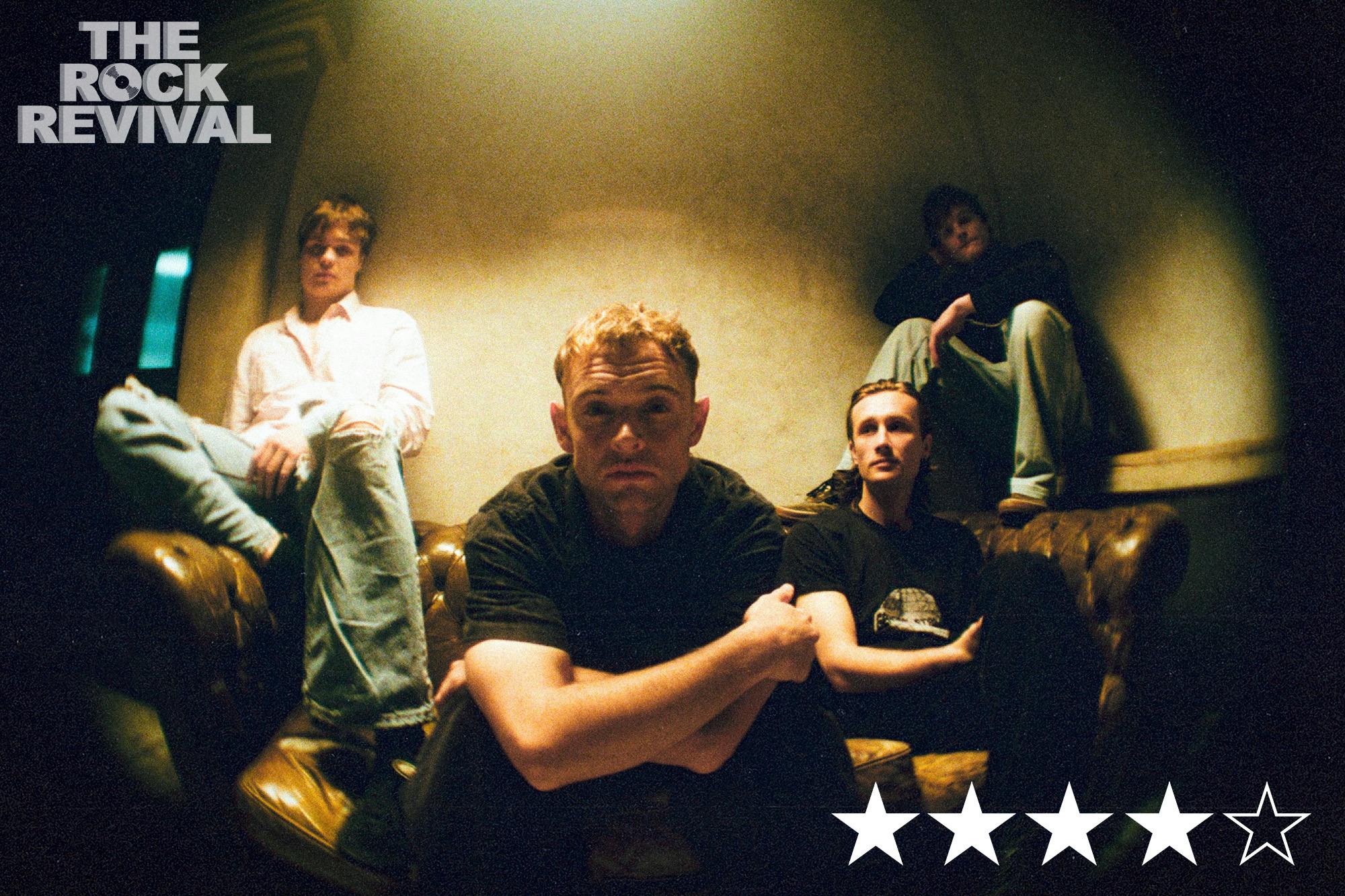
On stage, Jacob Slater is an enigmatic force who sings of violet dreams and dancing shadows. He sweats and screams, a man whose muse is clearly the grit of his guitar. When it comes to the UK’s alternative answer to Cobain’s successor, there’s a glaringly obvious answer.
Such high praise doesn’t come around for free. The Nirvana comparisons is a tag that’s followed Slater ever since his ‘Dead Pretties’ days, a band from the underground London scene whose screams from the basement whispered out before they ever had a chance to be heard. Once the singer formed a new band, grew out a mullet and wrote the definitive coming-of-age track ‘Teal’, magic seemed to follow in their steps. Wunderhorse’s debut album ‘Cub’ was raw in all the right places, sharing songwriting that was inescapably tragic yet simultaneously blossoming with compassion and heart. It gave the band the best possible headache they could ask for; how do you follow that up?
The answer, obviously, was in the same place where Nirvana recorded ‘In Utero’, a recluse studio deep in the woods of Minnesota. From there, the band dedicated their time to capturing the messy, grungy grind of a basement jam. Their second album, but technically their first as a collective band, was born.
Songs from ‘Midas’ were given life to fans far before their recording sessions, however, as the band couldn’t resist playing their tracks on stage. The title track was begged beyond belief on TikTok and Instagram to be released online, for good reason too. It’s live performance was snarly and full throttled, and at its core strong sonically – an acoustic version would probably sound like something off of Dylan’s ‘Desire’. Yet something seems to fall short of the mark when you press play, whether it be due to missing the line “I’m talking to YOU!” that Slater bellows live, or the tone of the guitar rubbing too softly, something feels lost in the production. Not to the band’s fault, but the track may just be a product of songs never sounding as good as they do live, and there is an excellent tune somewhere deep down there.
If the title track came off as a somewhat missed opportunity, follow-up single ‘July’ fell short of expectations. The grungiest the band have ever went just unfortunately manages to also be them at their tamest, as the heavy, distorted riff lacks any sense of urgency and feels like a crawl to the finish line. Slater’s vocals and lyrics showcase a man crying for help, but the wailing comes off too raw despite its substance and springs jaggedly in your ear. Thankfully, the rest of ‘Midas’ is a band operating at their highest order, both in songwriting and instrumentation.
The final two singles ‘Silver’ and ‘Rain’ gave that sense of urgency ‘July’ lacked, and album cut ‘Emily’ has the grit that went missing on the studio version of ‘Midas’. ‘Emily’ is particularly thunderous when its cymbals crash in over Slater’s lyrics of self-deprecation, “There’s things I can’t talk about/Memories, I swallow them down”, the instrumental further matching the overwhelming and emotive nature of the track as it builds and builds. Meanwhile, if the previously mentioned ‘Teal’ didn’t exist then ‘Arizona’ would probably have a strong shout for being the band’s finest moment. Its lyrics speak of lost love in the desert, and a broken person left in the wake: “There’s a wind that blows to Boston/And it sings the saddest tune”. Its final few moments feel gargantuan, with guitarist Harry Fowler really flexing his muscles. Another track that was first given life on stage, ‘Superman’ sounds even better than it originally came across, swapping out electric for acoustic, matching the uplifting tone of the track. It arrives on the other end of the emotional scope from earlier tracks, a sheer outburst of hope in its climax that seems to spur the band forwards. Slater raises his fist when playing it live defiantly, a strut of not just artistic confidence, but personal conviction too. At this moment, he seems to be furthest from the “ghost with no name” on ‘Arizona’ or the gambling fool on ‘Silver’, but someone conducting their own ballad in style.
Musically, there’s room for a fair few old-school bangers on ‘Midas’ too, with ‘Girl’ having luscious guitar leads and ‘Cathedrals’ sharing the same head-banging groove the rest of the album possesses. Closer ‘Aeroplane’ comes in at almost ten minutes long and sounds like an attempt to mimic Neil Young’s finest moments, an angelic-like sound of bass and neatly finger-picked guitars. Despite being a sharp maneuver of noise, it comes off as a testament to the band’s inherent quality. This isn’t a band of aimless jammers or wannabe punk-rockers. There’s quality running deeply in everything they touch, even if it is campfire-folk sounding.
As the final track wraps up it becomes clear that ‘Midas’ acts as a springboard for the vision of Wunderhorse’s future. It’s bleak and grungy beginnings never become overbearing thanks to its more reflective and somber moments, and any gaps in production quality will never erase the quality of musicianship for all to hear. Jacob Slater and co have found their collective voice, now watch them flourish.
Words by Niall McGreevy
